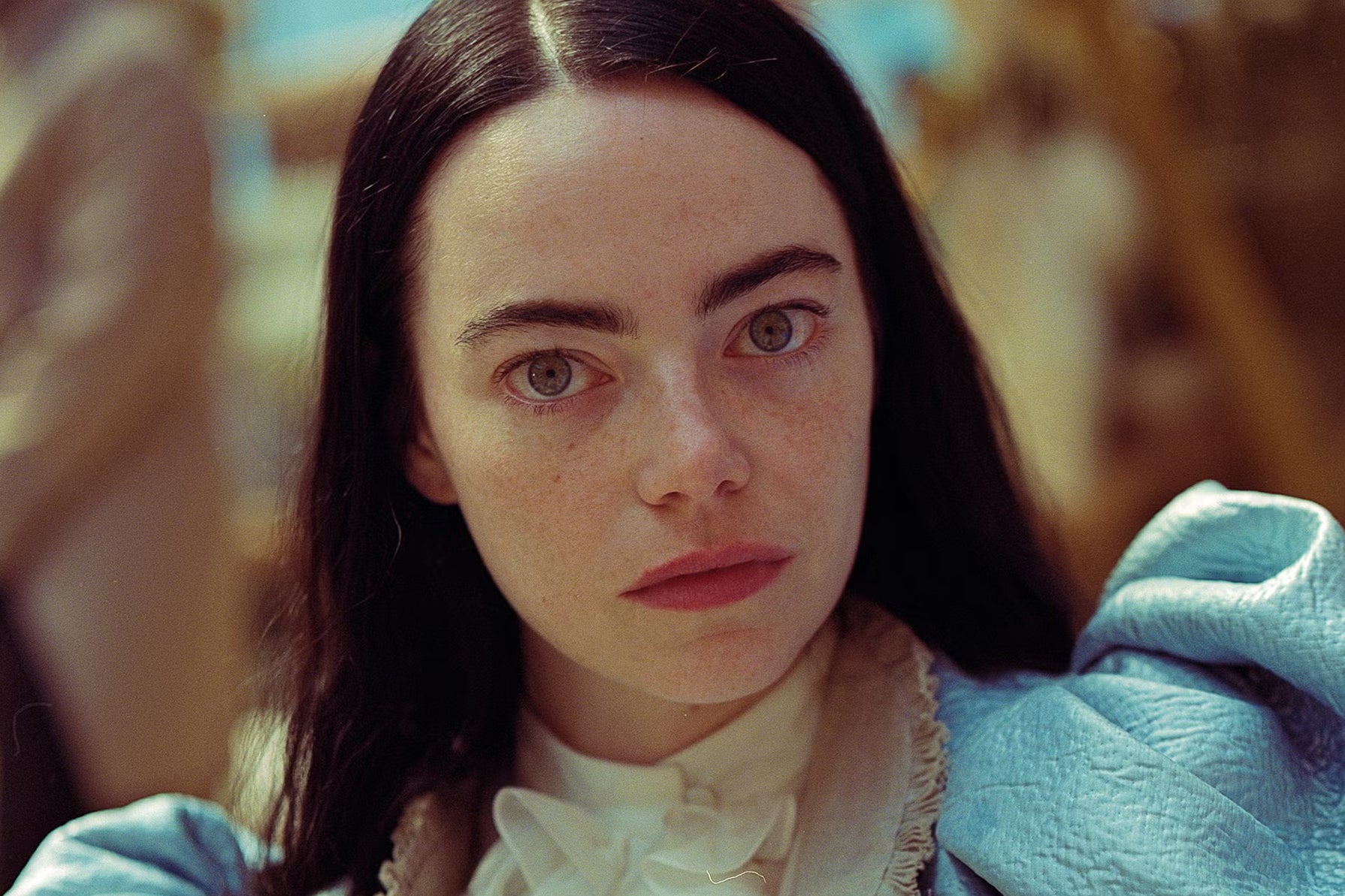Poor Things understands that nothing scares men more than a sexually liberated woman
The Oscar nominated film, starring Emma Stone as a reanimated corpse indulging in sex and socialism, has been accused of misogyny due to its graphic nudity and polarising gender politics. But this is a film as much about male insecurity as it is female empowerment, argues Xan Brooks


The monster’s the star in Yorgos Lanthimos’s Poor Things, a horror movie of sorts that thumbs its nose at convention and won’t stay in its lane. Adapted from a 1992 novel by Alasdair Gray, which was itself loosely adapted from Mary Shelley’s Frankenstein, Lanthimos’s film is a feast for the senses: a revisionist creature feature that dares to put the reanimated corpse centre stage. Poor Things leads the audience on a merry dance. The plot cartwheels around Europe; the screen blooms from black and white to full colour. That the monster is a woman only makes the trip more exciting.
The Academy Award nominations annointed Oppenheimer, Barbie and Maestro as 2024’s Oscar favourites. But Emma Stone looks a good bet to gatecrash the party and land a gong for her full-blooded performance as the film’s heroine, Bella Baxter, a tottering meat puppet who nonetheless possesses more life and agency than the gentlemen who surround her.
Lanthimos sends Bella rattling from city to city on a self-improving voyage of discovery. In this way, she’s not dissimilar to Lucy Honeychurch, the fetching ingenue tourist in A Room with a View. The difference here, though, is that where Lucy visited the poppy fields of Fiesole and the Basilica of Santa Croce, Bella’s education includes close study of socialist literature, together with an industrious stint at a Parisian brothel. So, Poor Things isn’t just a revisionist horror movie. It’s a twisted and transgressive rites-of-passage drama, too.
Might there be some issues related to this treatment of boisterous Bella Baxter? Absolutely there are – and the film would be less interesting without them. In the months since Poor Things scooped the top prize at the Venice Film Festival, aficionados of trash cinema have been lining up to compare it, semi-jokingly, to Frankenhooker, a 1990 B-movie about a vengeful zombie sex worker. And while most critics love Poor Things, a vocal minority have taken against its depiction of Bella as a taboo-busting free agent. “The film purports to be a feminist document,” wrote Mick LaSalle in the San Francisco Chronicle. “But it defines a woman’s autonomy as the ability to be exploited and not care.”
I’m not altogether convinced that this criticism is fair. Firstly, because it conveniently frames the Paris brothel sequence as Bella’s final destination, her defining life lesson, as opposed to what it is – a misadventure on the road. Secondly, because it oversimplifies Poor Things’ sexual politics, which are tangled and ambivalent, conditioned by a hundred years of monster movies. Lanthimos’s film, broadly speaking, adores Bella Baxter. But its love for her is compromised and contains an intriguing note of thrilled terror.
The male fear of the female: it’s a tale as old as time. According to the cultural critic Barbara Creed, every great horror film is essentially about women. Or rather, it’s about what Creed called “the monstrous-feminine”, the male perception of Woman in all her various incarnations. Alfred Hitchcock’s Psycho, by this logic, presents her in the role of a savage, smothering mother. In Ridley Scott’s Alien, she is a ruthless engine of reproduction; in Lars von Trier’s Antichrist, a castrating angel of vengeance. Poor Things sets her up as something different again. She’s an independent free thinker, a woman who comes to know her own mind. This, it’s implied, may be the most threatening incarnation of all.

It should at this point be noted that this is a film made by men. In the hands of a director such as Jennifer Kent (The Babadook) or Julia Ducournau (Titane), the story would no doubt have had a different tone, focus and destination. That might have been good, interesting on a whole other level, although it also risks missing the point of Poor Things. Because Lanthimos’s picture (scripted by Tony McNamara, shot by cinematographer Robbie Ryan) is about male anxiety as much as it’s about female empowerment. It’s a monster film about monster films; a kind of cinematic lab experiment that recycles misogynistic old tropes and makes them dance to a new tune. It laughs at male insecurity but understands it as well.
Which brings us back to Bella, the cause of the horror and possibly the cure for it, too. The old movie beasts had to be crushed or contained. But this one’s a trailblazer and largely treads her own path. “I am a flawed, experimenting person,” she declares, after she’s broken free from the lab and outpaced her pursuers, which is another way of saying that she’s an ongoing work in progress, a mass of happy contradictions: the creator and the experiment, the heroine and the monster. She’s consuming the world like a bawdy Godzilla. Her vocabulary is expanding by 15 words every day. It’s the men, the poor things, who are real losers here.
‘Poor Things’ is in cinemas
Join our commenting forum
Join thought-provoking conversations, follow other Independent readers and see their replies
Comments
Bookmark popover
Removed from bookmarks